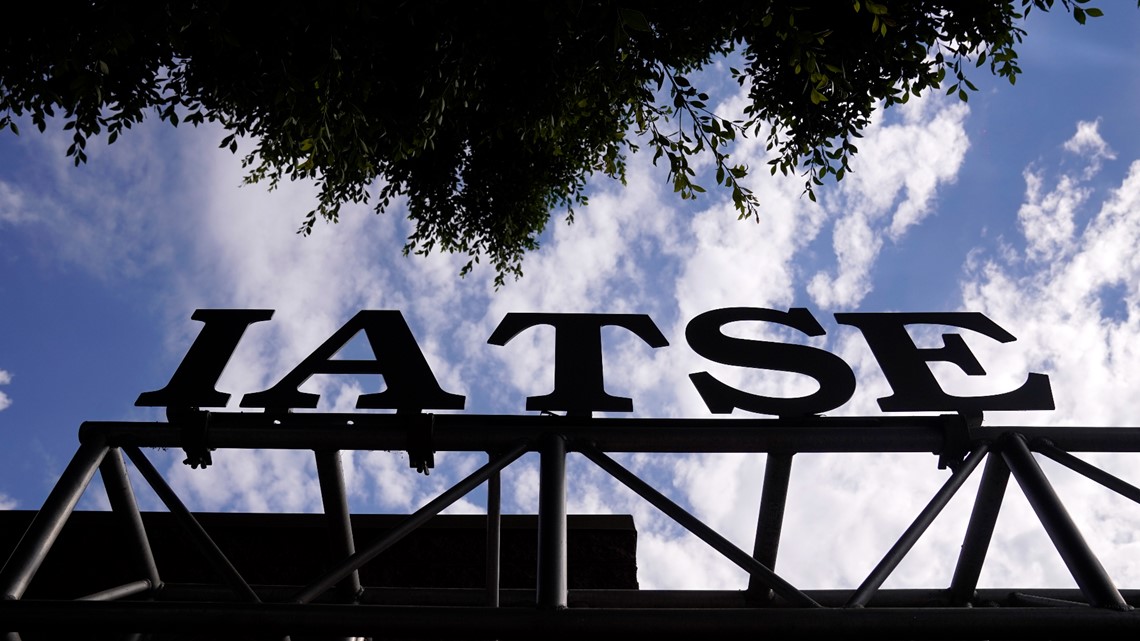LOS ANGELES — The union representing film and television crews says its 60,000 members will begin a nationwide strike on Monday if it does not reach a deal that satisfies demands for fair and safe working conditions.
A strike would bring a halt to filming on a broad swath of film and television productions and extend well beyond Hollywood, affecting productions in Georgia, New Mexico and other North American shoots.
International Alliance of Theatrical Stage Employees International President Matthew Loeb said Wednesday that the strike would begin at 12:01 a.m. Monday unless an agreement is reached on rest and meal periods and pay for its lowest paid workers.
Loeb cited a lack of urgency in the pace of negotiations for setting a strike date.
“Without an end date, we could keep talking forever,” Loeb said in a statement. "Our members deserve to have their basic needs addressed now.”
A strike would be a serious setback for an industry that had recently returned to work after long pandemic shutdowns and recurring aftershocks amid new outbreaks.
It’s the first nationwide strike in the 128-year history of IATSE, whose members include cinematographers, camera operators, set designers, carpenters, hair and makeup artists, animators and many others.
Union members say they are forced to work excessive hours and are not given reasonable rest via meal breaks and sufficient time off between shifts. Leaders say the lowest paid crafts get unlivable wages. And streamers like Netflix, Apple and Amazon are allowed to pay even less under previous agreements that allowed them more flexibility when they were up-and-comers.


The union reported on Oct. 4 that its members had voted overwhelmingly to allow its president to authorize a strike, but negotiations, and hopes to avert a walkout, resumed after the vote.
The Alliance of Motion Picture and Television Producers, which represents the studios and other entertainment companies in negotiations, said its members value their crew members and were committed to avoiding a shutdown in a still-recovering industry.



